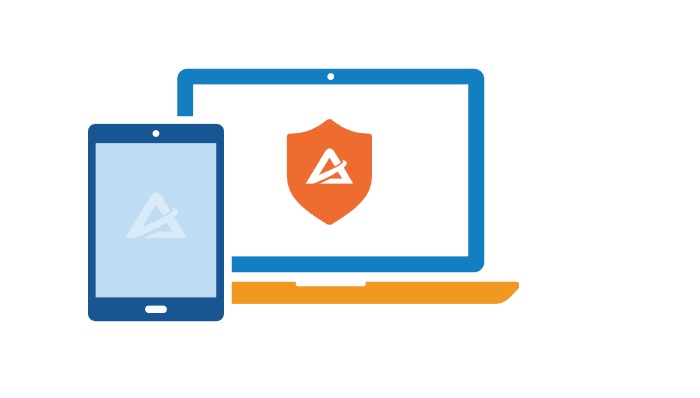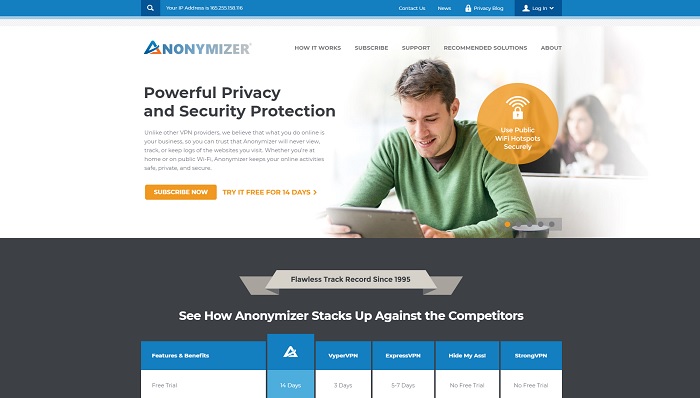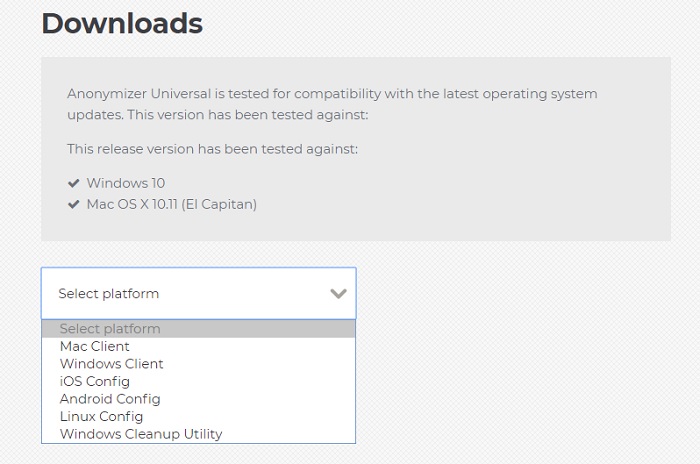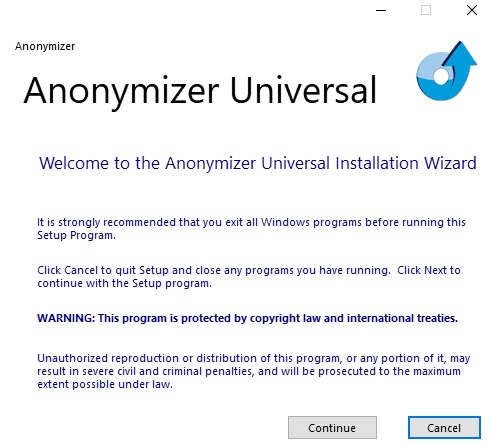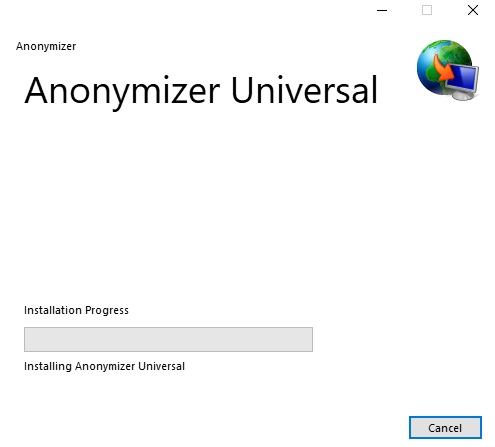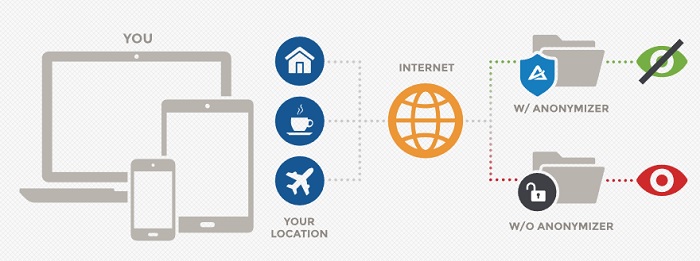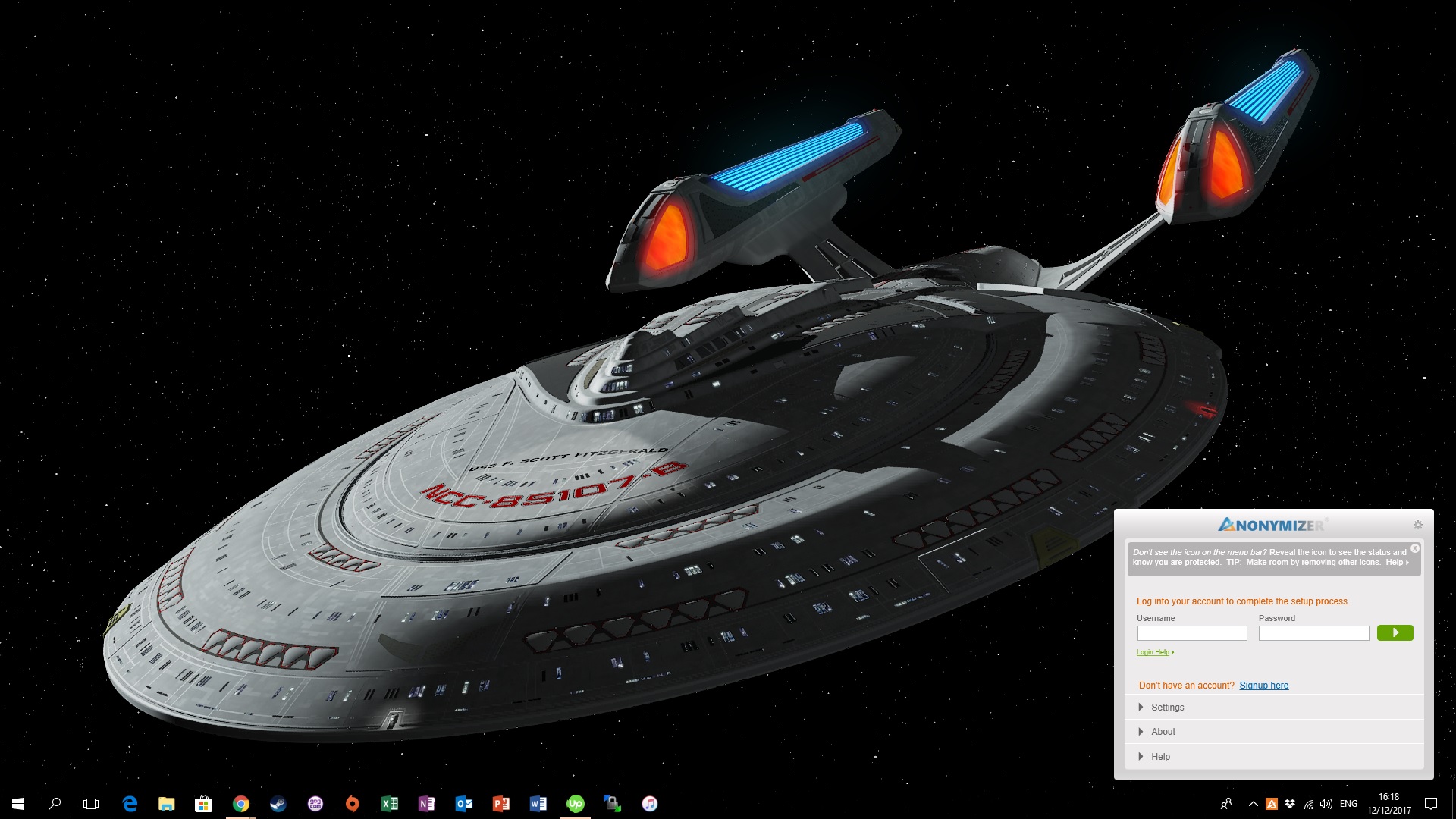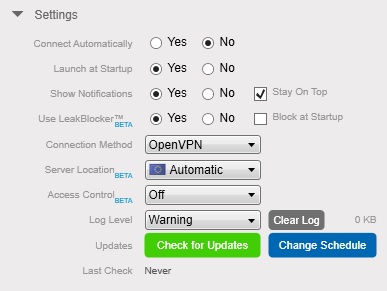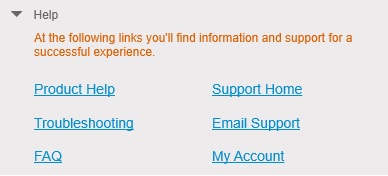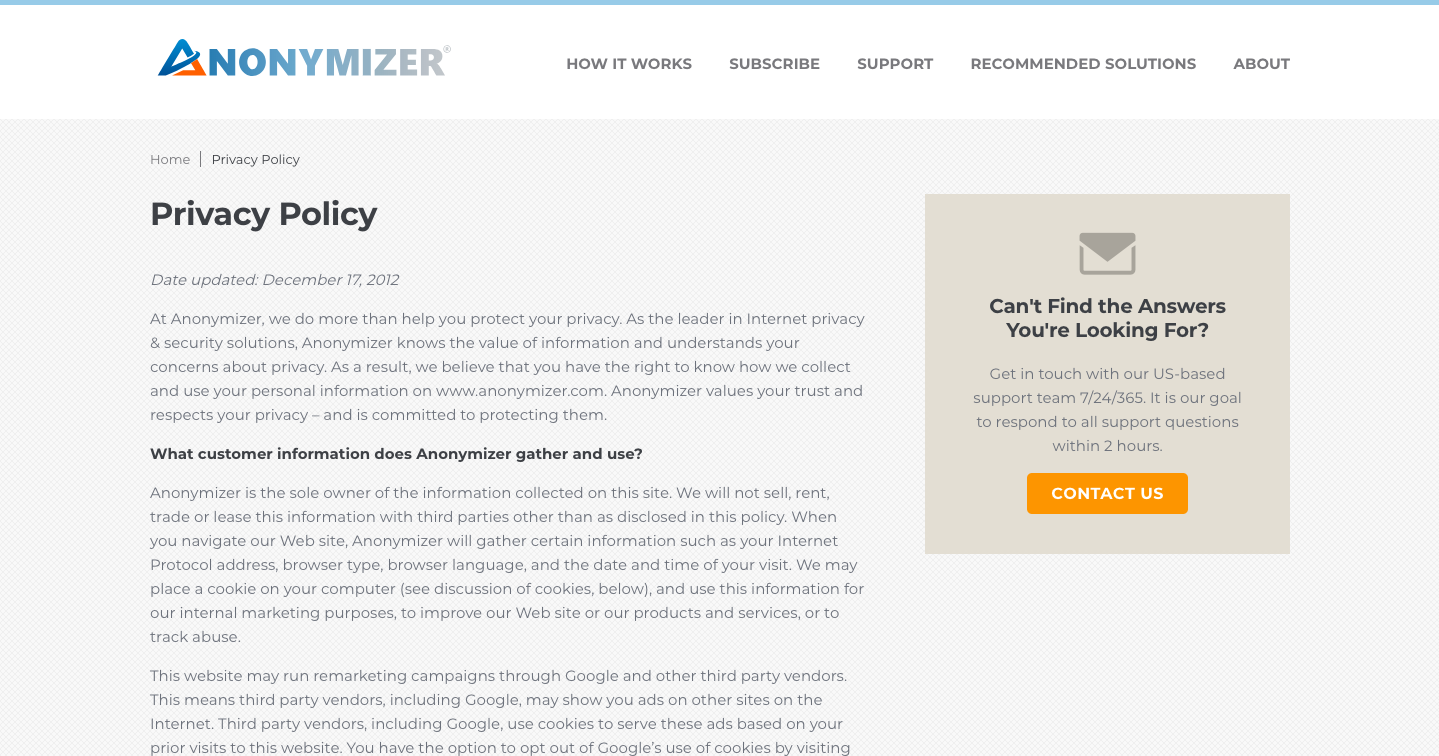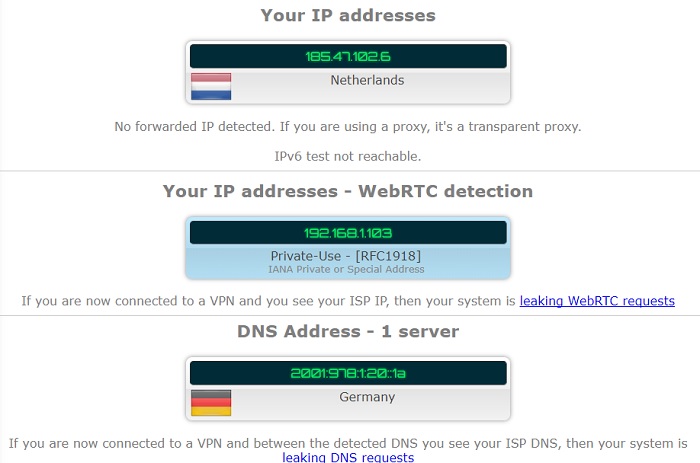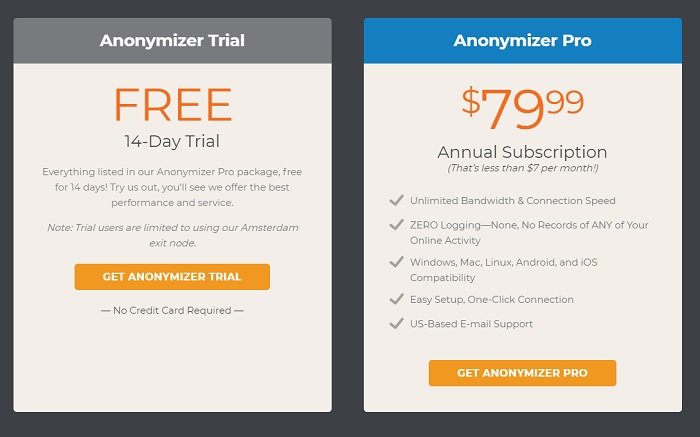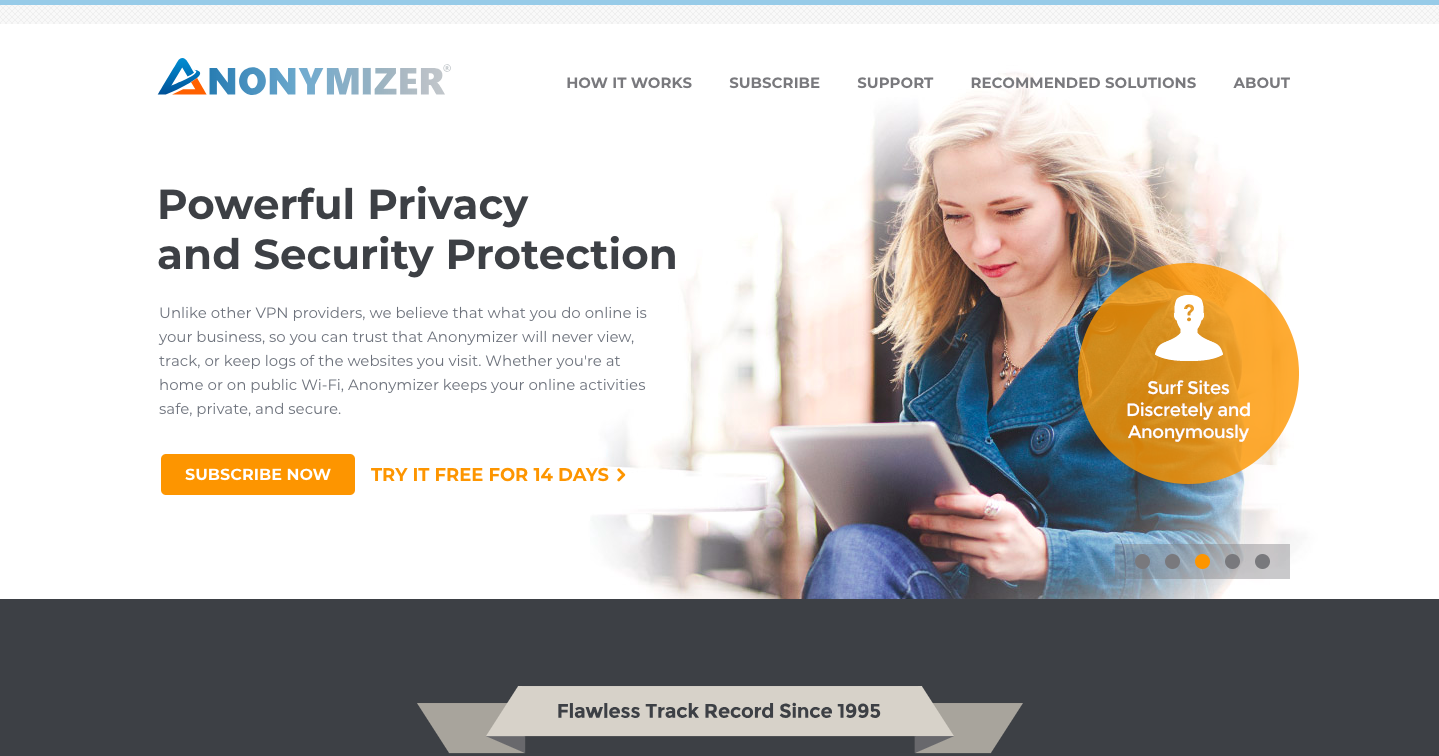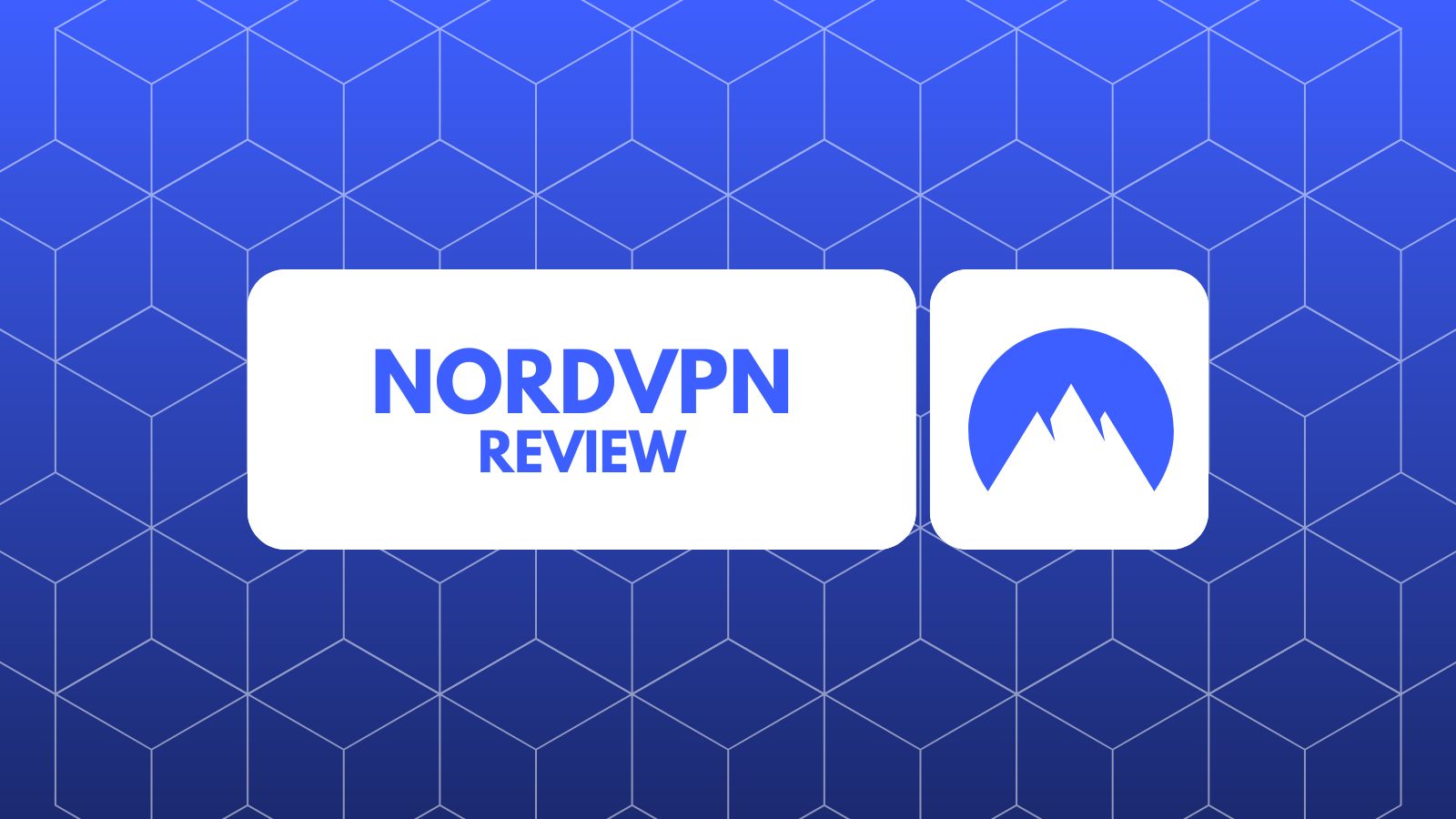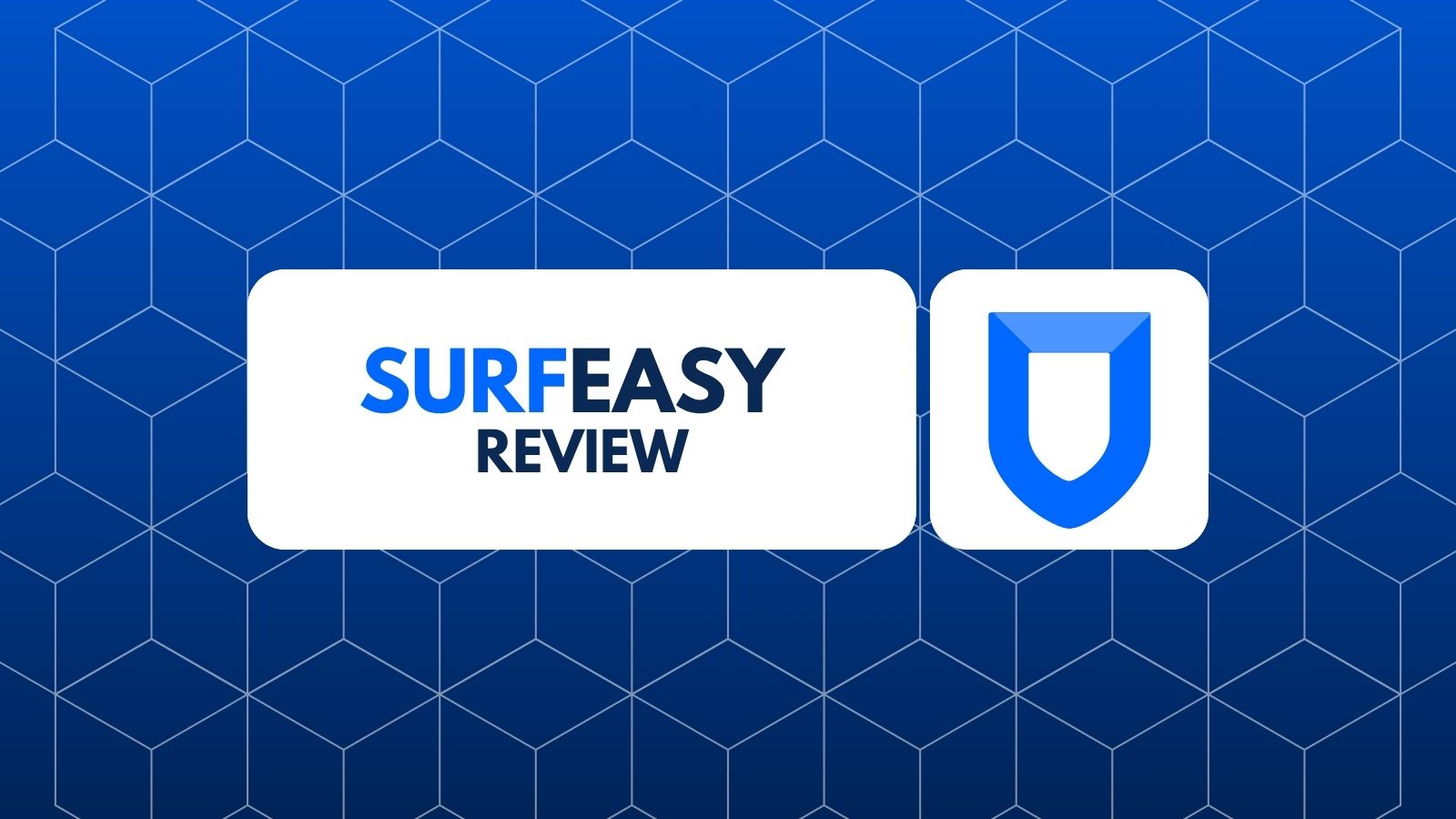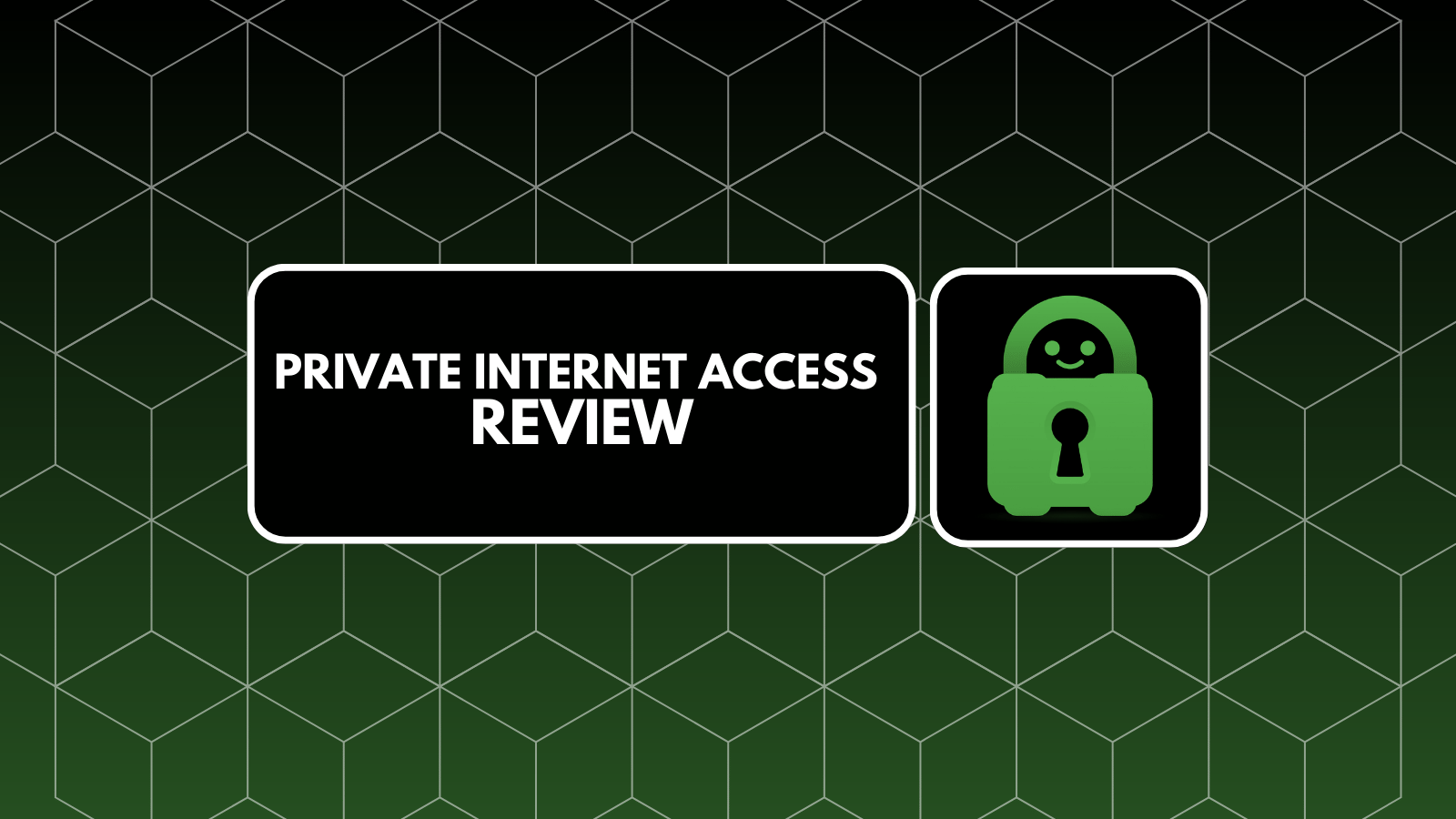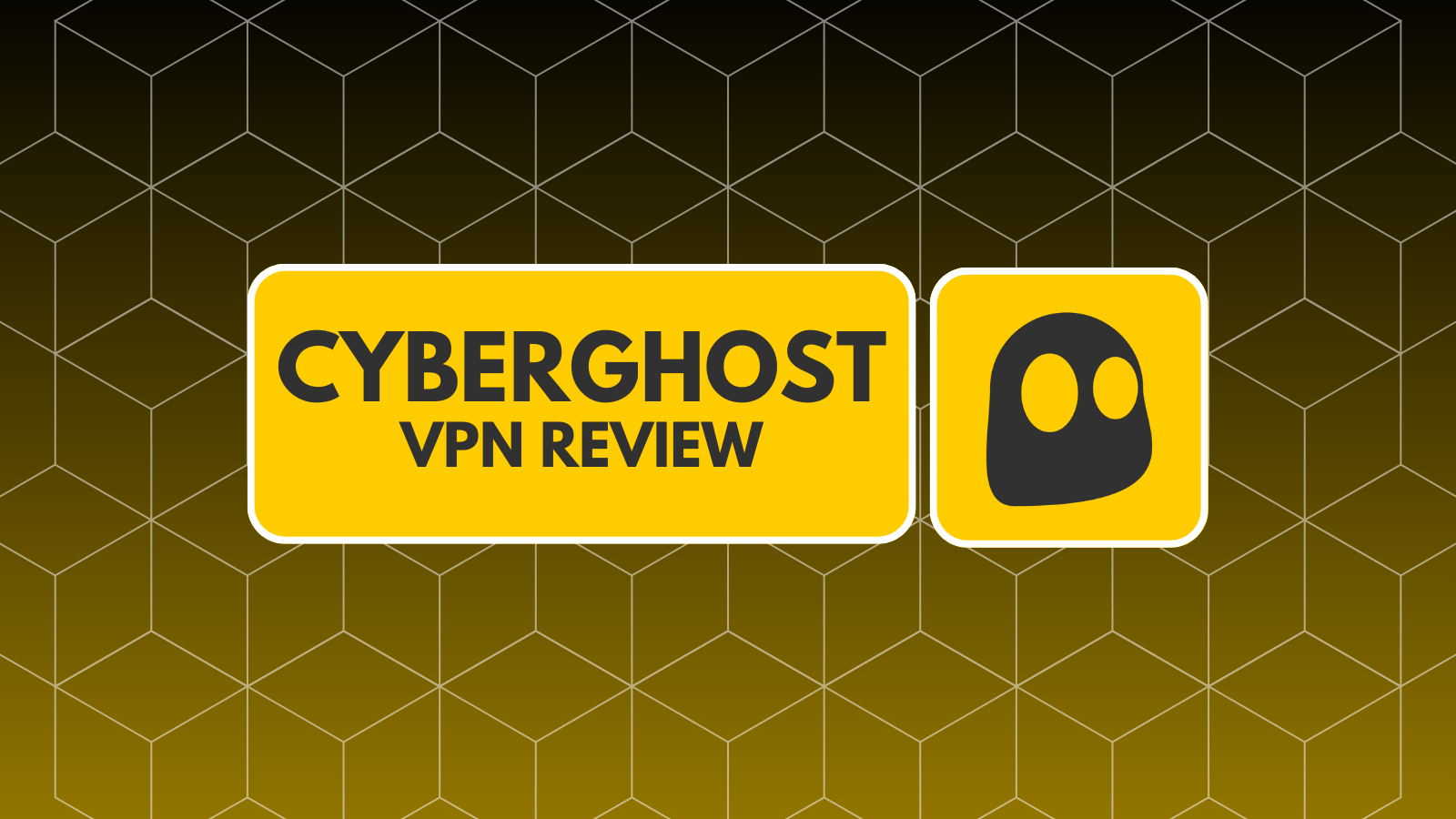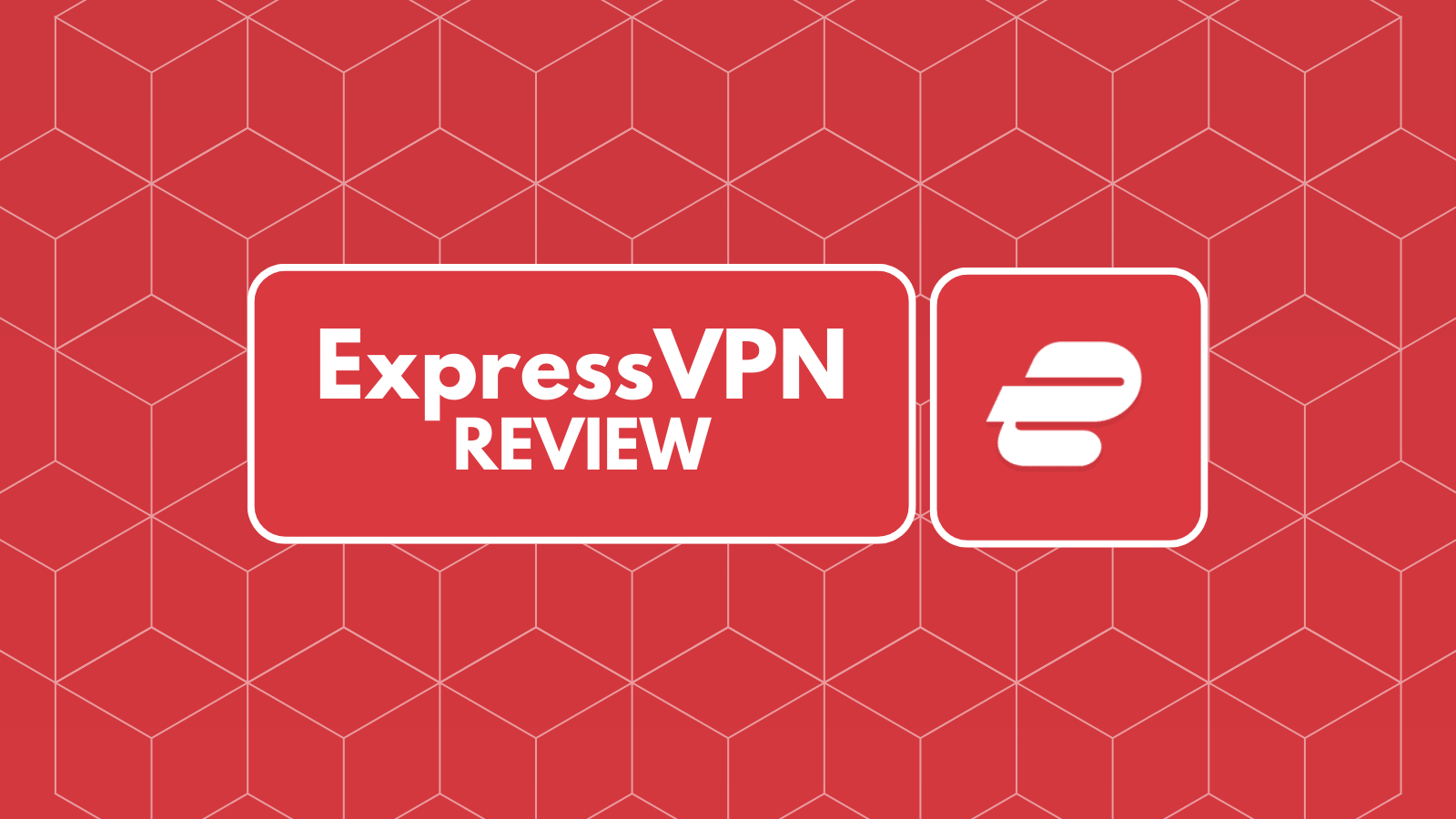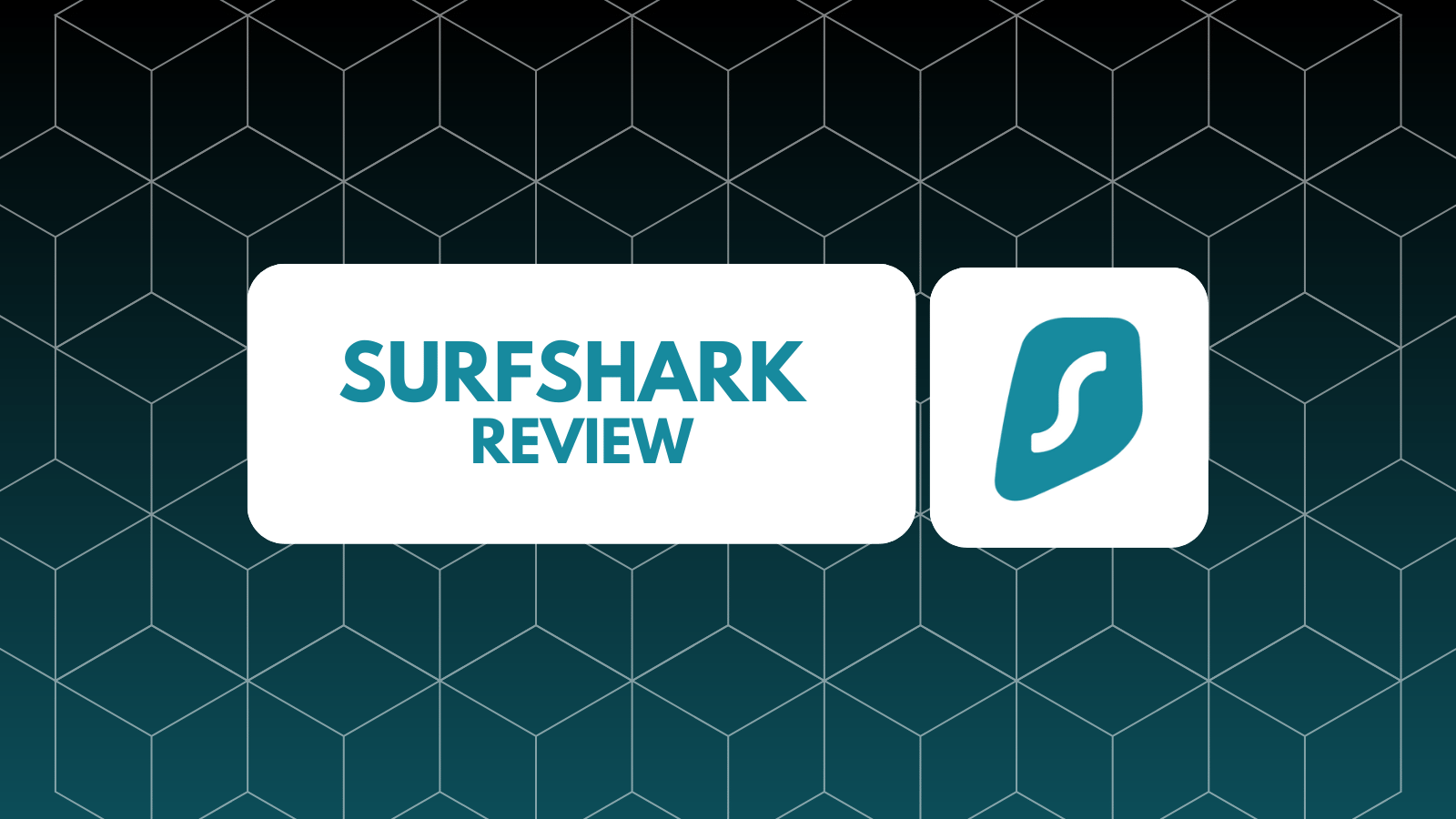Anonymizer VPN Review (No Longer Operational)
Our experts have reviewed 53 VPN providers, which were put through extensive rounds of testing. To learn more about that process, here’s how we review VPNs, where we explain our criteria and our policy of being fully transparent.
Have you ever heard of Anonymizer? I hadn’t myself, but apparently, this US-based VPN provider has been around since 1995 and is still pretty popular in that part of the world. So a non-US tech geek such as myself might be forgiven for never having heard of them. One of the most distinguishing aspects of this VPN, as we have already pointed out, is the fact that it predates most other players in the marketplace and has therefore carved a niche for itself.
Yet, if you do just a light bit of digging on the web looking for VPNs the name will come up sooner rather than later. Which means it’s a prime VPN service to get the TechNadu review treatment. We’ll be putting it through our standard battery of nine criteria. This includes evaluating the basic features, network size, and privacy technology. Here’s a quick overview of your convenience.
Well now, that’s quite a lot of criteria. Aren’t you happy they’re all summed up like that? You’re welcome!
The next thing everyone wants to know is whether a VPN can unblock streaming services. That’s why we make a point of testing all VPNs with US Netflix, Hulu, and Kodi. In the first two cases, we want to unlock the US libraries without being detected. When it comes to Kodi, we just want to keep our streaming private from outsiders, like our ISPs. These are the results:
We were unable to gain access to the US servers, which meant there was no way to test unblocking on US content. We’re read other accounts which indicate it wouldn’t work anyway, but that’s secondhand information. The reason we couldn’t access the US server is because only the trial was available. The reasons for this are explained below in the main section of the review. Kodi did work, but the quality was SD-ish, anything more and the bandwidth just wasn’t there.
Anonymizer VPN Review
The following is an in-depth review of the Anonymizer VPN tool, which we tested on a Windows machine. In order to get the Anonymizer client, you have to sign up and log in to access the download page as seen here. Irritatingly they don’t allow the use of special characters for passwords, which means those of us who use strong password generators might have to fiddle more than needed.
Supported Devices
Lackluster support with only two native clients, leaving OpenVPN for the rest. Our Score: 2/10
At first glance, Anonymizer seems to have at least the standard support for Windows, Mac, iOS, and Android. However, if you hit up either app store you won’t find much joy since there don’t seem to be any native applications for either platform.
Instead, you’ll have to log in a call up the downloads page. Here you’ll find OpenVPN configuration files for the respective OpenVPN solutions on iOS and Android. Not exactly the modern user-friendly experience we want from a VPN these days.
Here's an overview of the supported devices:
- OS: Android, iOS, Windows, Mac
- Browsers: No support
- Network devices/Others: no support
Installation & Setup
We also had a special set of problems when trying to sign up for an Anonymizer paid account. Our Score: 5/10.
The system rejected our credit cards because of some region glitch. We contacted support who indicated they’d get back to us with a solution. After three days without any further feedback, we had to give up on getting access to the paid version of the service and went ahead with the review using the 14-day trial. This has some implications which we’ll explain throughout the review.
After downloading the client and running it you’re greeted with an InstallAware wizard, which I haven’t seen in some time. It looks pretty nice, but there was some weird text corruption on my computer during the install.
You should also know that if you already have another VPN installed with the generic version of the OpenVPN the installer will ask to replace it with a custom version. That suggests people who want to switch between VPNs could run into trouble.
After clicking through some options (such as update scheduling) the install process completes itself.
Be aware that you’ll be asked to reboot your machine at the end.
Now we’re ready to start playing with the VPN, but first, let’s see what’s on the menu when it comes to features.
Prominent Features
Anonymizer somehow manages to have fewer features than even the most basic VPN. Our Score: 3/10
The people who make Anonymizer only care about one thing and that’s giving you secure, private browsing. Sure, they’ll mask your location as part of that. However, they only have two exit locations and you’ll have to be happy with them or go elsewhere.
So for your money, you get privacy, but that’s it.
Ease of Use
The Windows client is irritating to use, clunky and cramped. It works you won’t like it. Our Score: 4/10
The Anonymizer client is a little frustrating in a number of ways. First of all, it doesn’t come in the form of a movable window but is fixed to the bottom right of the screen just above the tray.
If you accidentally click anywhere else it minimizes again. You also better make sure it’s not in the tray icon overflow area because it’s literally impossible to keep the window open if activated from there. As soon as you click to close the tray overflow the actual client window closes as well. Believe me, I was grinding my teeth at this point.
As for the client itself, I guess if you want to be generous you could call it “compact”, but I think the word better suited here is “cramped”.
All the options and controls are arranged as stacked drop-down menus as you can see here when I open the settings section.
Speaking of which, this is the sum total of options you have. This is where you choose everything from launch options to server location. Yes, either of them.
The only other section worth mentioning is the help section.
Of course, it’s just a set of hyperlinks to the website. As you can see the Anonymizer client isn’t exactly the most attractive or pleasant to use we’ve seen.
As far as VPN websites go the Anonymizer is just OK. The design is very early-2000s corporate and you get the idea that they are really pitching their product to business clients.
In terms of functionality, the account dashboard is ugly but functional, it’s not hard to find support resources and there’s not much in the way of garish marketing stuff plastered everywhere.
Server Location
Anonymizer has two locations. Just two. Our Score: 1/10
I have no idea how many actual servers Anonymizer has, but I do know that they only have two locations to choose from. That has to be the record for the smallest global footprint of any VPN that we’ve seen.
I guess it’s not totally crazy given that this VPN centers on privacy rather than unblocking content. Surely you’ll get the full privacy treatment regardless of which location you choose, but non-US customers (and even those far away from San Diego) are unlikely to get great performance.
Speed
The tool wouldn't connect us to the VPN servers when we conducted updated tests on the latest version. Our Score: 0/10
In our latest review of this software, we downloaded the free version to test the latest speed performance, since software continually improve their networks on an ongoing basis.
However, to our utter surprise, while the installation was successful and the dashboard appeared, we couldn't move past the login screen to be able to connect to a VPN server and run the speed tests.
Security & Privacy
If Anonymizer sticks to what they promise in terms of user privacy then they’re one of the best at keeping your identity safe. Our Score: 8/10
The whole point of Anonymizer is that they care absolutely about your privacy. So my expectation is that this is where the service will shine.
Encryption
I have no idea what encryption they’re using. Presumably, it’s 128-bit or 256-bit AES like almost everyone else. There’s also mention of “proprietary” technology, but not much detail on what it does.
Logging
When we look at the privacy policy (which is a huge document) they clearly state that no logs are kept whatsoever. According to the company, the only way you could ever be linked to a specific website accessed through their VPN is by real-time monitoring. Which they also don’t do. There is simply no way of getting historical browsing information from them.
Rather cheekily Anonymizer lists a few of the big names in the VPN business as logging VPNs, despite many of them claiming otherwise. The point being that they are one of the few “real” zero-logging services.
DNS Leaks
I ran the battery of tests on ipleak.net. Anonymizer passes IP and DNS leak testing with flying colors.
This means that outsiders on the other end of the connection only see the location and information Anonymizer wants them to see.
Customer Service
Despite locking users into large upfront payments, Anonymizer doesn’t provide live chat. They do however promise peppy email support year-round. In practice communication was terrible. Our Score: 1/10
Anonymizer will sell their service to anyone in the world, but English-speaking customers will be happy to know that the support team is US-based.
Unfortunately, there is no live chat, but the site advertises 24/7/365 availability with a target response time of two hours. Rather leisurely by the standards of the best VPNs, we’ve tested, but still better than other email-only offerings.
There are some user guides and troubleshooting resources on the site. It’s not as extensive as some knowledge bases I’ve seen on competing platforms, but it’s OK for most people.
Unfortunately, as you read above, when we actually asked for help we got a single reply and then nothing more for days. As I write this I’m still waiting for customer support to get back to me despite sending multiple follow-ups.
Pricing
While a 14-day Trial is nice, only offering an annual plan seems rather mean in a world of monthly subscriptions. Our Score: 3/10
Anonymizer managed to provide me with two firsts when it comes to its pricing. First, if offers the longest free trial period I’ve yet seen. You can sign up and enjoy the service for two weeks before having to pay anything, but that brings us to the next issue. The second “first” is the total lack of a monthly plan. In fact, this VPN service only offers a single pricing tier. The annual plan at $79.99 is the reason you get a 14-day trial in the first place. So that you can be sure it’s worth committing to that much time and money. In addition, you get 45 days to ask for a refund. So even after you’ve paid you can get your money back if you become unhappy.
Here's an overview of the pricing plans:
- There is just one yearly plan, which costs $79.99 (or about $7 per month)
- No monthly plans available as in other VPNs
The trial and refund policy help to soften the blow, but the truth is many people opt for the more expensive monthly subscriptions because they don’t have that much money free in one chunk, which makes me suspect Anonymizer leaves plenty of customers at the door.
Final Verdict
Anonymizer is your best bet if you prefer privacy above anything else. Don't expect much, though, for the tool lacks several advanced features commonly found in other VPN.
Who Should Use This VPN? - If you absolutely only care about total privacy without any logs whatsoever, then this is a viable option.
Who Should Not Use This VPN? - If you want the side-benefits of having a modern VPN such as unblocking content and location hopping then you can pass on Anonymizer. Those looking out for a VPN with monthly plans will be disappointed.
- PROS: Strong privacy and security; Cloaks user IP; Zero-logging; Free 14-day trial
- CONS: Lacks advanced features; UI is not friendly enough; Lacks flexible pricing plans
- Final Verdict: 3 out of 10!
Buy Anonymizer
If you have made up your mind to purchase Anonymizer, head over to the official Anonymizer website and purchase a subscription plan today.
Final Thoughts
Although Anonymizer has been around for quite some time, the service doesn’t seem to have moved with the times. You can’t do any of the things modern VPNs can do besides hiding your identity. Network performance is pretty bad and barely usable, although if you happen to live near either Amsterdam or San Diego that might not be true for you. Unfortunately statistically most people in the world don’t live near either of these places and therefore it has limited appeal.
I do however understand to an extent why they only have these two locations. Anonymizer fully owns and operates its own servers. This level of control and ownership is pretty rare in the VPN world, where online capacity tends to be outsourced. It’s not really a problem in general, but it does introduce another potentially weak link in the chain. In order to have an absolute control, you’re limited in this way.
I have to ask the question of whether someone who needs this additional level of privacy shouldn’t simply combine Tor with a more modern VPN when they really need it and then live with industry-standard VPN privacy for more low-risk activities. It makes it hard to understand who the Anonymizer service is actually for these days.
| Review Summary Anonymizer is a very basic VPN that provides strong privacy. It lacks several advanced features though and is laden with its own problems. | 3.4 Overall Score | ||
| Supported Devices | 2 | ||
| Installation & Setup | 5 | ||
| Prominent Features | 3 | ||
| Ease of Use | 4 | ||
| Server Location | 1 | ||
| Security & Privacy | 8 | ||
| Customer Service | 1 | ||
| Pricing | 3 | ||

